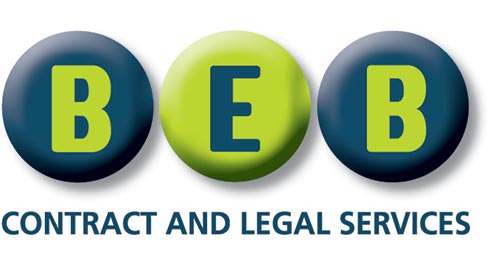Before IR35 took effect in April 2000, contractors who declared themselves as self-employed were able to provide personal services through their intermediaries, a personal service company or a limited company. As a result, they could set up an employment contract with their clients and work in the capacity of an “employed” individual while enjoying the tax privileges afforded to the self-employed. In turn, they paid less in taxation and National Insurance contributions (NIC) compared to regular employees who were required to make such payments at a higher rate.
To curb the growth of this way of working that avoided paying some taxes, the government introduced IR35. This piece of legislation is designed to prevent “disguised employees” from avoiding their tax obligations, ensuring that they pay the correct amount of tax.
However, for many reasons, IR35 has come under fire; for example, some say that it has been poorly defined and implemented. Despite such criticisms, it has remained in effect for the last 20 years and was even slated for an update in April 2020. However, the changes to IR35 were put off for another year so the government could turn its attention to the COVID-19 pandemic.
How to Ensure IR35 Compliance
When trying to ensure IR35 compliance, there are several important factors to consider. If you are a contractor or freelancer who provides specialised or personal services to clients directly or through an intermediary, here are some steps you should take in order to be IR35-compliant, especially with regard to signing contracts.
1. Work practices
You should always ensure that the contracts between you and your clients comply with the IR35 tax legislation. In addition, these contracts must be accurate and reflect your existing work practices. Bear in mind that, as a contractor, it is your responsibility to confirm the details of the contract with your client before signing it and finalising the work arrangements.
2. Right of substitution
You should also make sure that what you or your company is offering is considered to be a “service” rather than personal skills. In other words, you should be able to provide a substitute or hire assistants when rendering the service to your client. Furthermore, if you do provide a substitute worker, they must be answerable to you, not the client. Conversely, when the time comes, it is your responsibility to pay this substitute worker their wages.
3. Control
To ensure compliance with IR35, you should be able to maintain control over how, when and where you carry out the agreed work. The client must not supervise or have any say over how the services are provided as this could be indicative of employment, which is against the provisions of the tax legislation.
As far as possible, you should try to provide your services at your own offices. You should also set the working hours at your convenience.
4. Provision of equipment
The equipment and associated tools you use when providing your services can also affect your IR35 status. To ensure compliance, you (or your substitute/assistants) must utilise your own equipment. In fact, if you use equipment and facilities provided by your client, you will be violating IR35 as this could indicate that you are working for them and therefore you are an “employee in disguise”.
5. Financial risk
Whether you are a freelancer, contractor or the owner of a service company, you must be able to demonstrate your ability to take a financial risk, which includes:
- The ability to procure your own equipment, office supplies and training.
- The willingness to insure your client against losses or damages brought about by your negligence.
- The ability to correct defective and unsatisfactory work at your expense.
- The ability to provide your own insurance coverage (for example, Employers’ Liability, Professional Indemnity and Public Liability).
Moreover, you should be able to prove that you can profit from the investments and management decisions you make concerning your company or business venture. As it is extremely rare for an ordinary employee to take a financial risk on behalf of their workplace, officials from HMRC would consider this to be a red flag if they believe that you cannot fulfil such requirements.
6. Basis of payment
The way in which you are paid can also be indicative of your current IR35 status. To ensure compliance, you should not be paid by the hour, week or month. Instead, you should have the ability to negotiate your rates and send invoices to your clients for work completed and services rendered. At the same time, you should be able to bear expenses and overheads.
7. Exclusivity of services
As far as is possible, you should offer services to more than one client. Indeed, it would be better if you have multiple clients at the same time. If you work exclusively for just one client, HMRC is likely to assume that you are providing services as an employee. The official view is that, while it may not be conclusive, working for one client for extended periods may indicate the presence of a single and continuous employment contract.
8. Mutuality of obligation
As a contractor or service provider, you are not obliged to provide additional work once the agreed work has been completed and the contract with your client has expired. By the same token, your client is not required to ensure that you have a continuous source of employment. If they need you to offer additional services on top of what you have already provided, you and your client must mutually draft a new contract.
Why Does IR35 Compliance Matter?
As a freelancer, contractor or self-employed individual, failure to comply with the provisions of IR35 could have a devastating effect on your finances and career.
If HMRC suspects you of non-compliance, it can audit your accounts for up to six years prior to the start date of an investigation. If the tax officials find that you have been providing services in the same way as a regular employee, despite the fact that you have declared yourself as self-employed, you may have to make the following payments to the government:
- Unpaid taxes
- Interest charges
- Penalties (if any are issued)
Moreover, what makes paying back the taxes you owe particularly challenging is that HMRC can force you to fulfil your obligations in as little as 3–6 months. In addition, the amount due can be increased by a minimum of 25%.
Because of the strict penalties and steep charges, contractors and freelancers who have previously contravened IR35 have had no other choice but to increase their rates so they could make up for their reduced income. This in turn caused them to lose several of their clients. For this reason, ensuring IR35 compliance is vital, especially if your current trade or business is your primary source of income.
Seek Professional Advice
To ensure compliance, reviewing how you operate as a contractor/freelancer or manage your service company against the criteria set out above can be hugely beneficial. Helpfully, HMRC has a status checker that you can use to determine how the tax department will view your contracts.
For optimum results, it is wise to speak to someone who knows the ins and outs of IR35. At BEB, we have a team of tax and employment law experts who can help you make sense of the provisions of this tax legislation, as well as the upcoming changes that will come into effect in April 2021. Contact us today and let us review your contracts and provide you with the professional advice you require.

